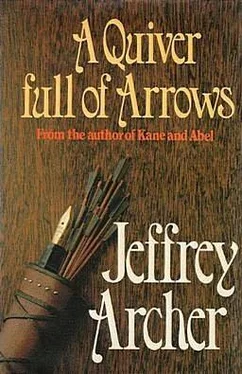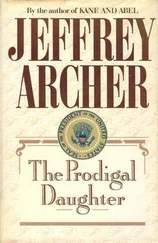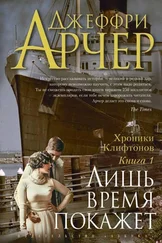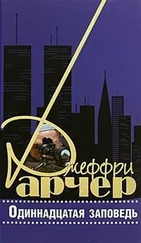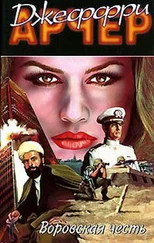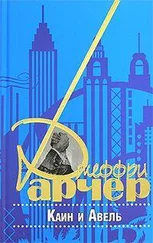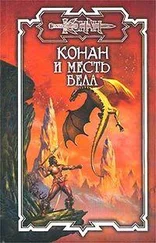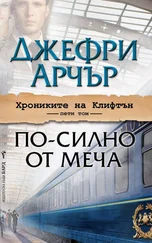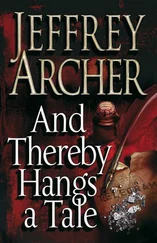“Ah,” he said, “perhaps the most beautiful county in England.” I smiled, as most foreigners never seem to travel much beyond Oxford or Stratford-on-Avon. “To drive across the Mendips,” he continued, “through perpetually green hilly countryside and to stop at Cheddar to see Gough’s caves, at Wells to be amused by the black swans ringing the bell on the Cathedral wall, or at Bath to admire the life-style of classical Rome, and then perhaps to go over the county border and on to Devon... Is Devon even more beautiful than Somerset, in your opinion?”
“Never,” said I.
“Perhaps you are a little prejudiced,” he laughed. “Now let me see if I can recall:
Of the western counties there are seven
But the most glorious is surely Devon.
Perhaps Hardy, like you, was prejudiced and could think only of his beloved Exmoor, the village of Tiverton and Drake’s Plymouth.”
“Which is your favorite county?” I asked.
“The North Riding of Yorkshire has always been underrated, in my opinion,” replied the old man. “When people talk of Yorkshire, I suspect Leeds, Sheffield and Barnsley spring to mind. Coal mining and heavy industry. Visitors should travel and see the dales there; they will find them as different as chalk from cheese. Lincolnshire is too flat and so much of the Midlands must now be spoiled by sprawling towns. The Birminghams of this world hold no appeal for me. But in the end I come down in favor of Worcestershire and Warwickshire, quaint old English villages nestling in the Cotswolds and crowned by Stratford-upon-Avon. How I wish I could have been in England in 1959 while my countrymen were recovering from the scars of revolution. Olivier performing Coriolanus, another man who did not want to show his scars.”
“I saw the performance,” I said. “I went with a school party.”
“Lucky boy. I translated the play into Hungarian at the age of nineteen. Reading over my work again last year made me aware I must repeat the exercise before I die.”
“You have translated other Shakespeare plays?”
“All but three. I have been leaving Hamlet to last, and then I shall return to Coriolanus and start again. As you are a student, am I permitted to ask which university you attend?”
“Oxford.”
“And your college?”
“Brasenose.”
“Ah. B.N.C. How wonderful to be a few yards away from the Bodleian, the greatest library in the world. If I had been born in England I should have wanted to spend my days at All Souls, that is just opposite B.N.C., is it not?”
“That’s right.”
The professor stopped talking while we watched the next race, the first semi-final of the 1,500 meters. The winner was Anfras Patovich, a Hungarian, and the partisan crowd went wild with delight.
“That’s what I call support,” I said.
“Like Manchester United when they have scored the winning goal in the Cup Final. But my fellow countrymen do not cheer because the Hungarian was first,” said the old man.
“No?” I said, somewhat surprised.
“Oh, no, they cheer because he beat the Russian.”
“I hadn’t even noticed,” I said.
“There is no reason why you should, but their presence is always in the forefront of our minds and we are rarely given the opportunity to see them beaten in public.”
I tried to steer him back to a happier subject. “And before you had been elected to All Souls, which college would you have wanted to attend?”
“As an undergraduate, you mean?”
“Yes.”
“Undoubtedly Magdalen is the most beautiful college. It has the distinct advantage of being situated on the River Cherwell; and in any case I confess a weakness for perpendicular architecture and a love of Oscar Wilde.” The conversation was interrupted by the sound of a pistol and we watched the second semi-final of the 1,500 meters, which was won by Orentas of the U.S.S.R., and the crowd showed its disapproval more obviously this time, clapping in such a way that left hands passed by right without coming into contact. I found myself joining in on the side of the Hungarians. The scene made the old man lapse into a sad silence. The last race of the day was won by Tim Johnston of England and I stood and cheered unashamedly. The Hungarian crowd clapped politely.
I turned to say goodbye to the professor, who had not spoken for some time.
“How long are you staying in Budapest?” he asked.
“The rest of the week. I return to England on Sunday.”
“Could you spare the time to join an old man for dinner one night?”
“I should be delighted.”
“How considerate of you,” he said, and he wrote out his full name and address in capital letters on the back of my program and returned it to me. “Why don’t we say tomorrow at seven? And if you have any old newspapers or magazines do bring them with you,” he said, looking a little sheepish. “And I shall quite understand if you have to change your plans.”
I spent the next morning looking over St. Matthias Church and the ancient fortress, two of the buildings that showed no evidence of the revolution. I then took a short trip down the Danube before spending the afternoon supporting the swimmers at the Olympic pool. At six I left the pool and went back to my hotel. I changed into my team blazer and gray slacks, hoping I looked smart enough for my distinguished host. I locked my door and started toward the lift and then remembered. I returned to my room to pick up the pile of newspapers and magazines I had collected from the rest of the team.
Finding the professor’s home was not as easy as I had expected. After meandering around cobbled streets and waving the professor’s address at several passers-by, I was finally directed to an old apartment block. I ran up the three flights of the wooden staircase in a few leaps and bounds, wondering how long the climb took the professor every day. I stopped at the door that displayed his number and knocked.
The old man answered immediately, as if he had been standing there, waiting by the door. I noticed that he was wearing the same suit he had had on the previous day.
“I am sorry to be late,” I said.
“No matter, my own students also find me hard to find the first time,” he said, grasping my hand. He paused. “Bad to use the same word twice in the same sentence. ‘Locate’ would have been better, wouldn’t it?”
He trotted on ahead of me, not waiting for my reply, a man obviously used to living on his own. He led me down a small dark corridor into his drawing room. I was shocked by its small size. Three sides were covered with indifferent prints and watercolors depicting English scenes, while the fourth wall was dominated by a large bookcase. I could spot Shakespeare, Dickens, Austen, Trollope, Hardy, even Waugh and Graham Greene. On the table was a faded copy of the New Statesman . I looked around to see if we were alone, but there seemed to be no sign of a wife or child either in person or picture, and indeed the table was only set for two.
The old man turned and stared with childish delight at my pile of newspapers and magazines.
“ Punch, Time and the Observer , a veritable feast,” he declared, gathering them into his arms before placing them lovingly on his bed in the corner of the room.
The professor then opened a bottle of Szürkebarát and left me to look at the pictures while he prepared the meal. He slipped away into an alcove which was so small that I had not realized the room contained a kitchenette. He continued to bombard me with questions about England, many of which I was quite unable to answer.
A few minutes later he stepped back into the room, requesting me to take a seat. “Do be seated,” he said, on reflection. “I do not wish you to remove the seat. I wish you to sit on it.” He put a plate in front of me which had on it a leg of something that might have been a chicken, a piece of salami and a tomato. I felt sad, not because the food was inadequate, but because he believed it to be plentiful.
Читать дальше
